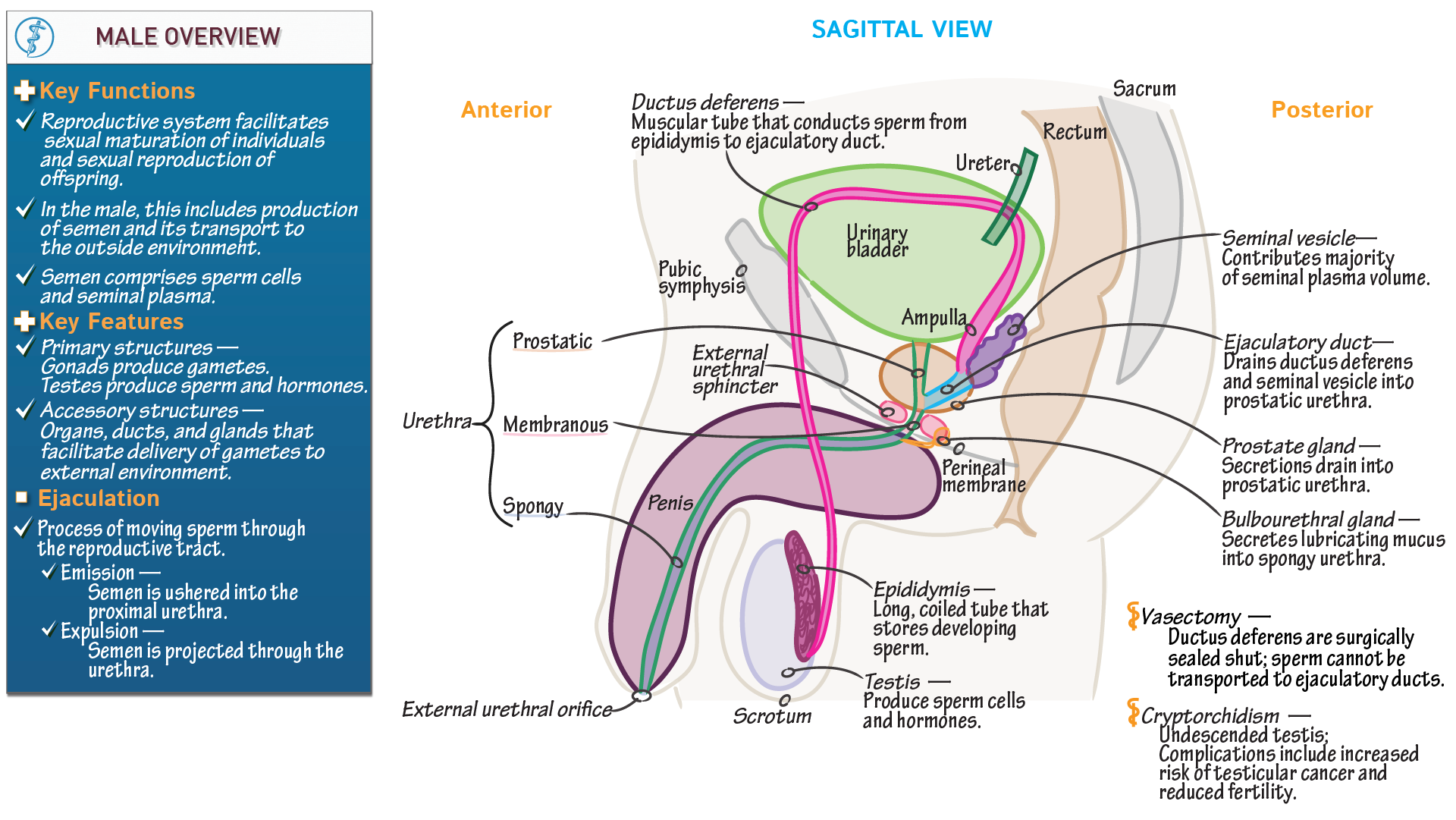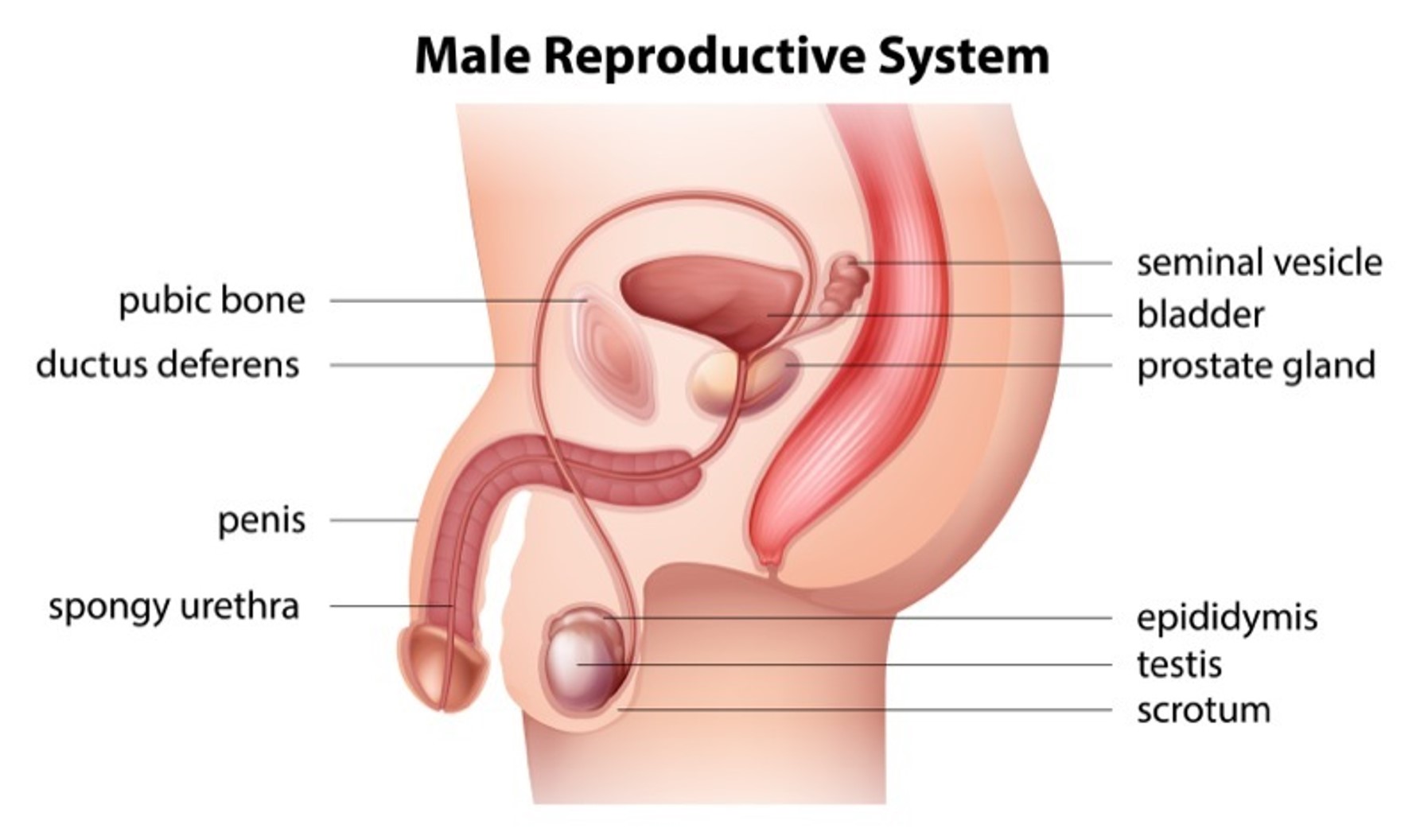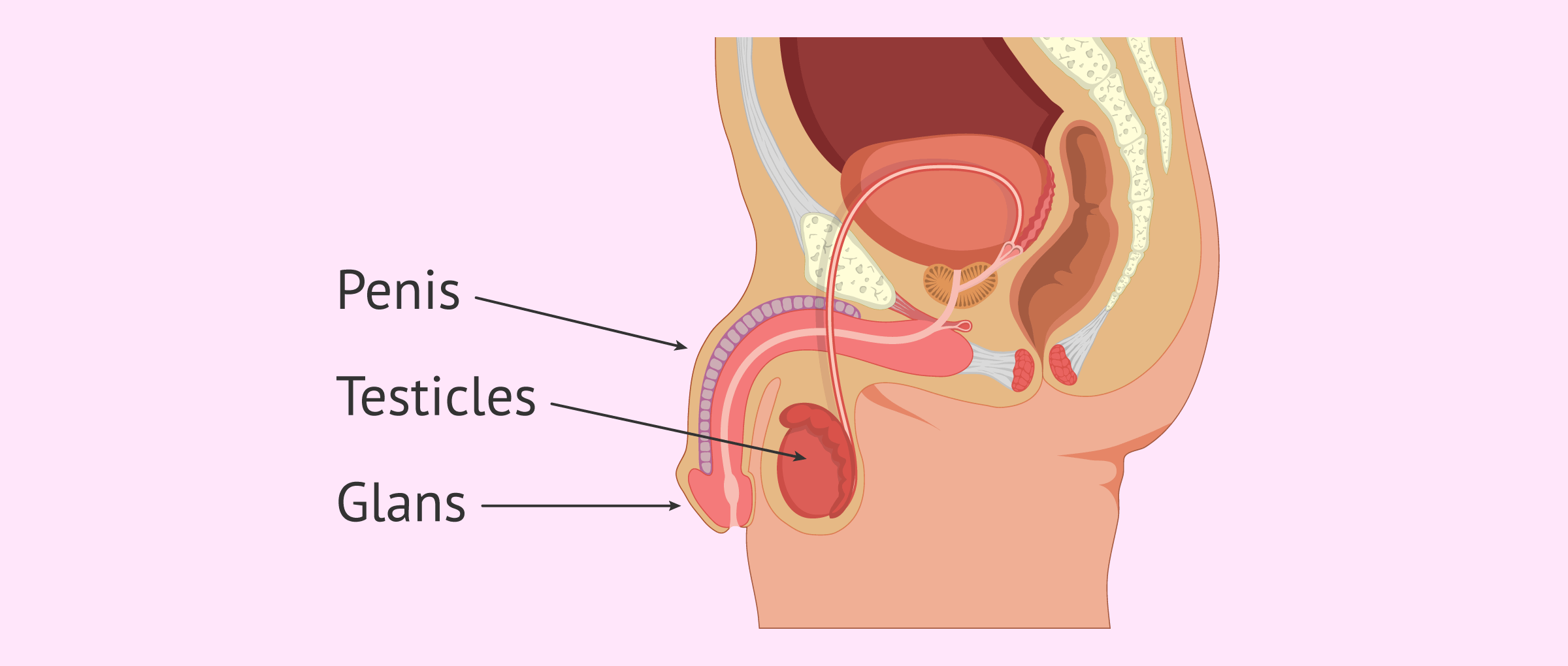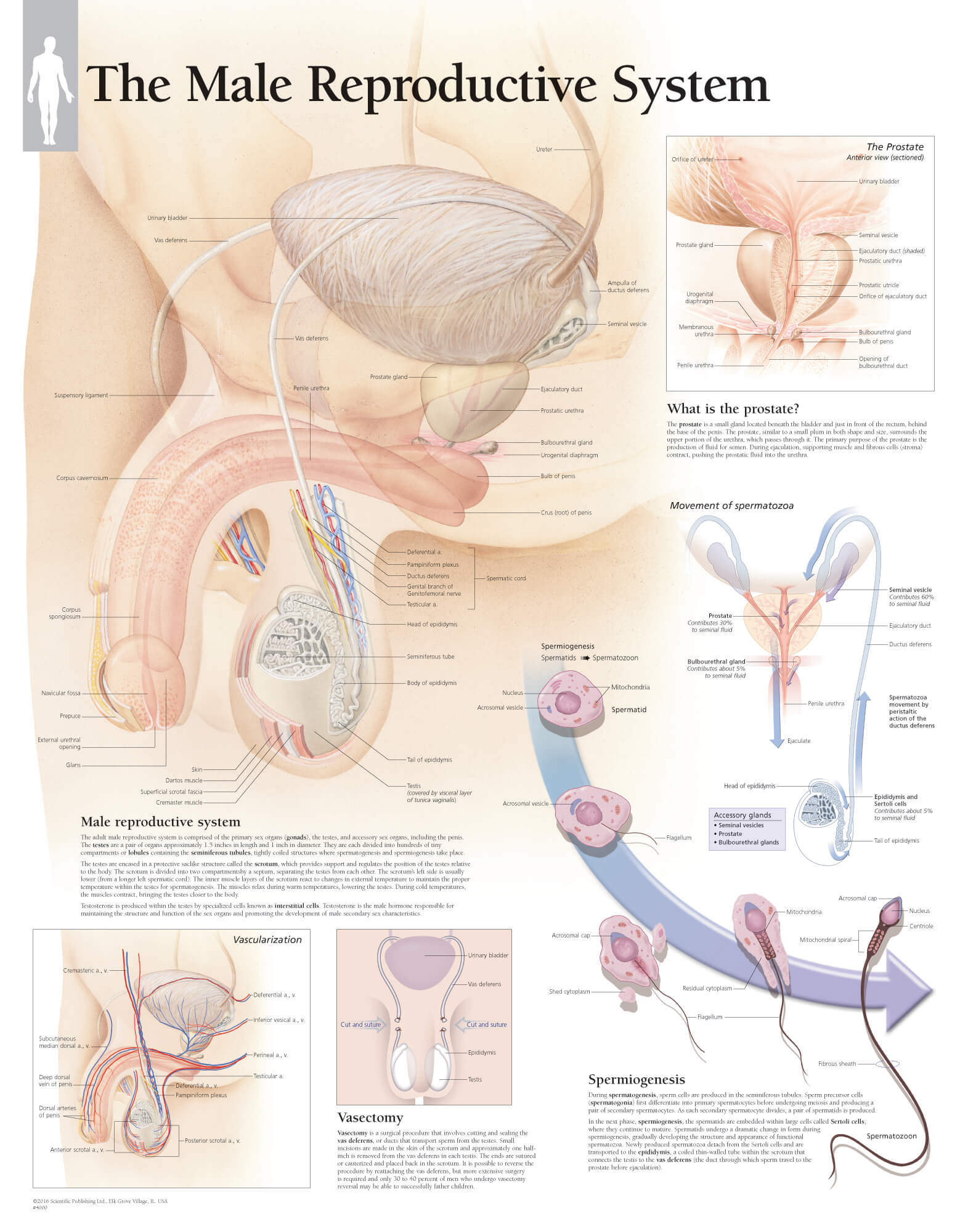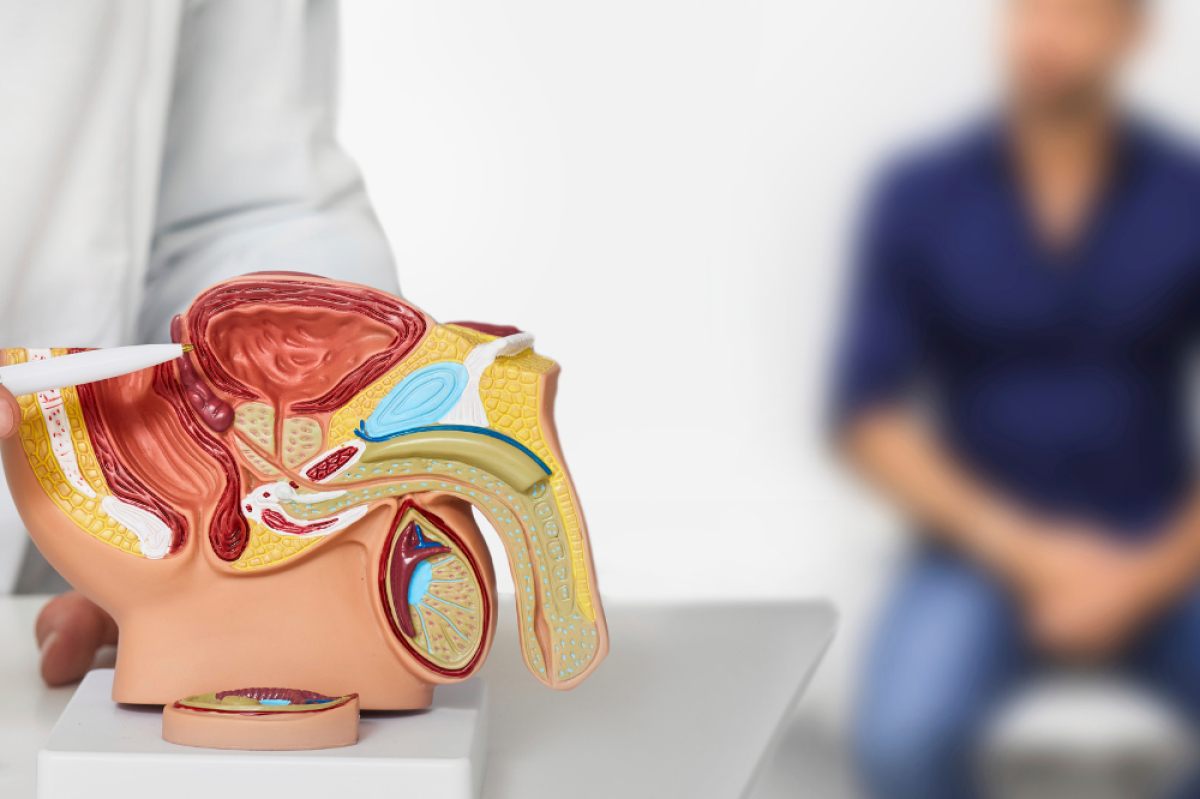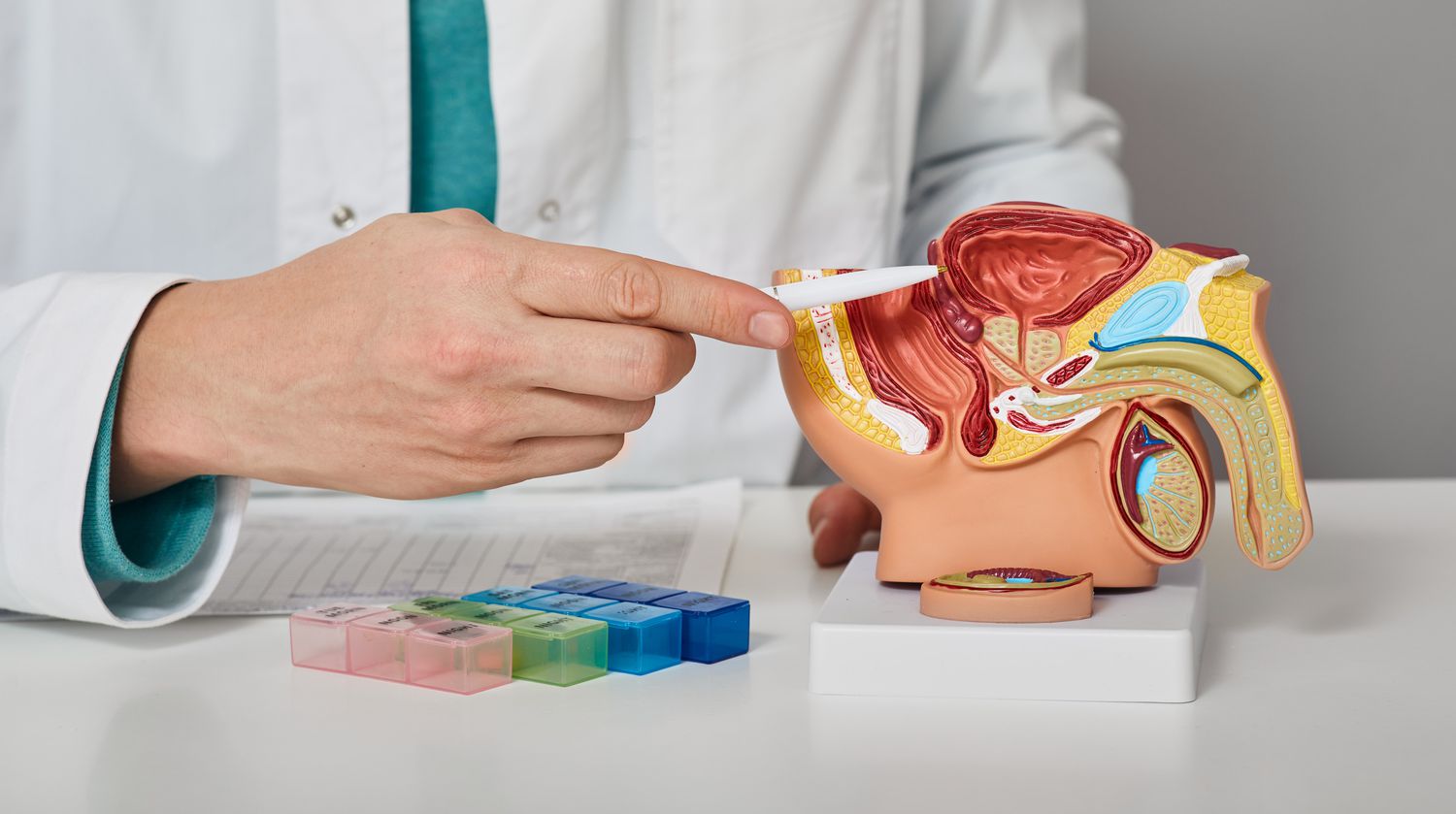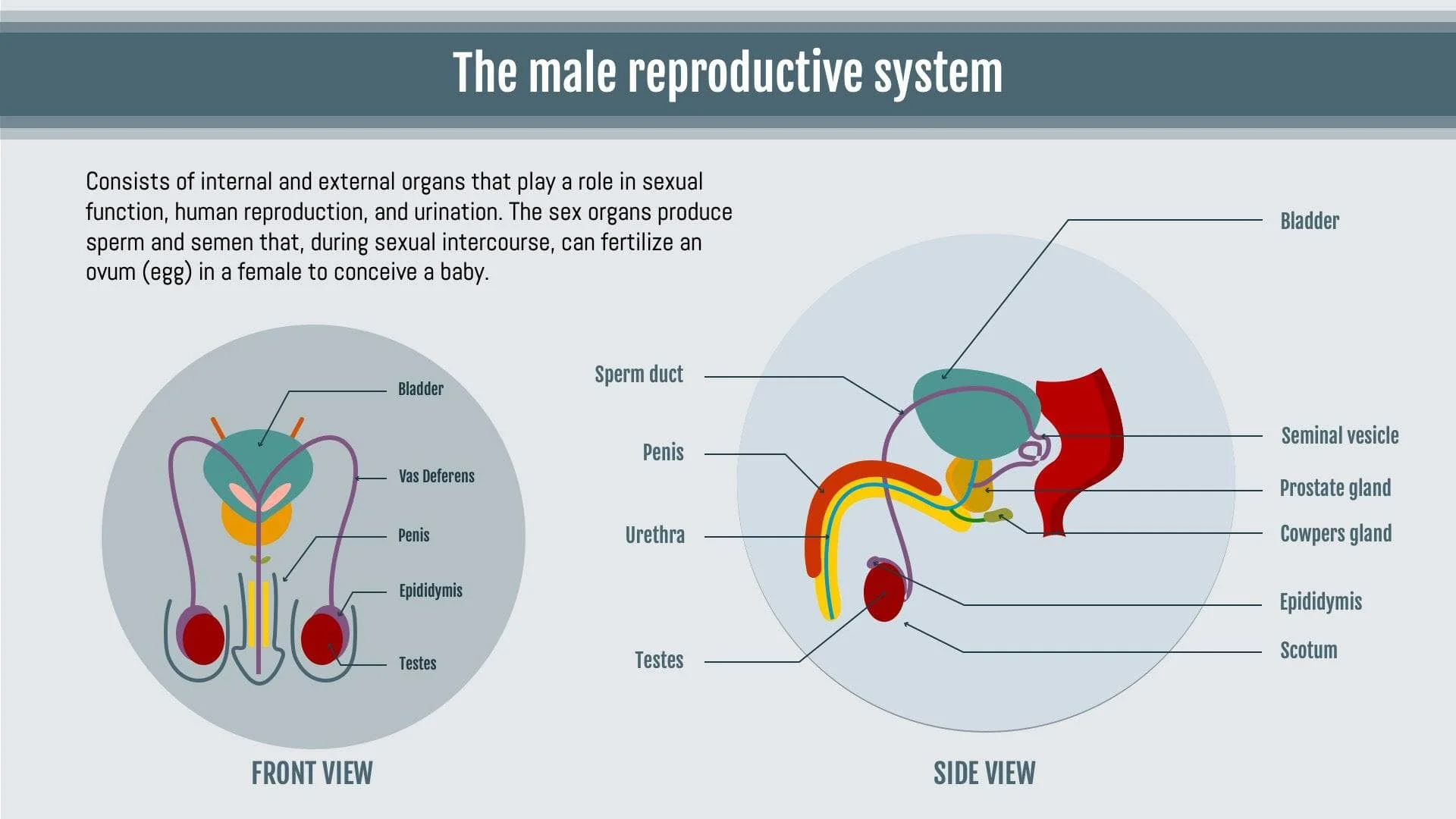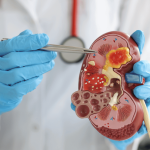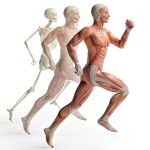
Key facts
- The male reproductive system includes parts of the male body that are involved in sexual activity, fertility, and reproduction.
- It includes both the external genital such as the penis and testes, as well as the internal parts such as the prostate gland and urethra.
- Common problems include infertility, prostate disease, impotence, loss of sex drive and testicular cancer.
- Having a healthy reproductive system requires knowing when to ask for help from your doctor.
- If you notice any symptoms or problems, it is important to see your doctor quickly — early treatment can avoid serious long-term problems.
What is the male reproductive system and how does it work?
The male reproductive system includes the external genitals (the penis, testes and the scrotum) and internal parts, including the prostate gland, vas deferens and urethra. Your fertility and sexual traits depend on the normal functioning of your reproductive system, as well as hormones released from the brain.
The male reproductive system is important for reproduction. It is made of the following parts:
- Penis — the organ used for urination and sexual intercourse. It has spongy tissue that can fill with blood to cause an erection. It contains the urethra, which carries both urine and semen.
- Scrotum — this is a loose bag of skin that hangs outside the body, behind the penis. It holds the testes in place.
- Testes (or testicles) — these are a pair of egg-shaped glands that sit in the scrotum, on the outside of the body. They produce sperm and testosterone, which is the main male sex hormone.
- Epididymis — this is a highly coiled tube that lies at the back of the testes. All sperm from the testes must pass through the epididymis, where they mature and start to ‘swim’.
- Vas deferens — this is a thick-walled tube joined to the epididymis. It carries sperm from the epididymis up to the prostate gland and urethra.
- Prostate gland — this is a walnut-sized gland that sits in the middle of the pelvis. The urethra runs through the middle of it. It produces the fluid secretions that support and nourish the sperm.
- Urethra — this is a tube that extends from the bladder to the external opening at the end of the penis. The urethra carries both urine and sperm.
- Seminal vesicles — these are 2 small glands above the prostate gland that make up much of the fluid in semen.
- Brain — The brain also has an important role in reproductive function, as it controls the release of sex hormones, and is involved in arousal.

What are the common problems of the male reproductive system?
As with any other part of the human body, things can sometimes go wrong with the male reproductive system, including:
- infertility
- difficulty urinating
- prostate disease
- impotence or erectile dysfunction (the inability to get a satisfactory erection)
- loss of libido or sex drive
- hormone deficiency
- testicular cancer
When should I see my doctor?
If you notice any symptoms or problems, for example, prostate or erection problems, it is important to see your doctor quickly. They could be symptoms of another underlying medical condition. Early treatment can avoid serious long-term problems.
How can I prevent reproductive health problems?
Having a healthy reproductive system requires knowing when to ask for help from your doctor. It is important for a healthy reproductive system to have access to:
- family planning services
- health care, including preventive screening, diagnosis and treatment of reproductive issues
- contraception
- protection and treatment of sexually transmissible infection (STI)
- health care and support in cases of family, domestic and sexual violence
Reproductive health is an important part of your overall physical, mental and emotional health and wellbeing. Having a healthy reproductive system allows you to have a safe and healthy sex life and the choice to have a child if you wish. Around 1 in 9 Australian couples have fertility problems.
